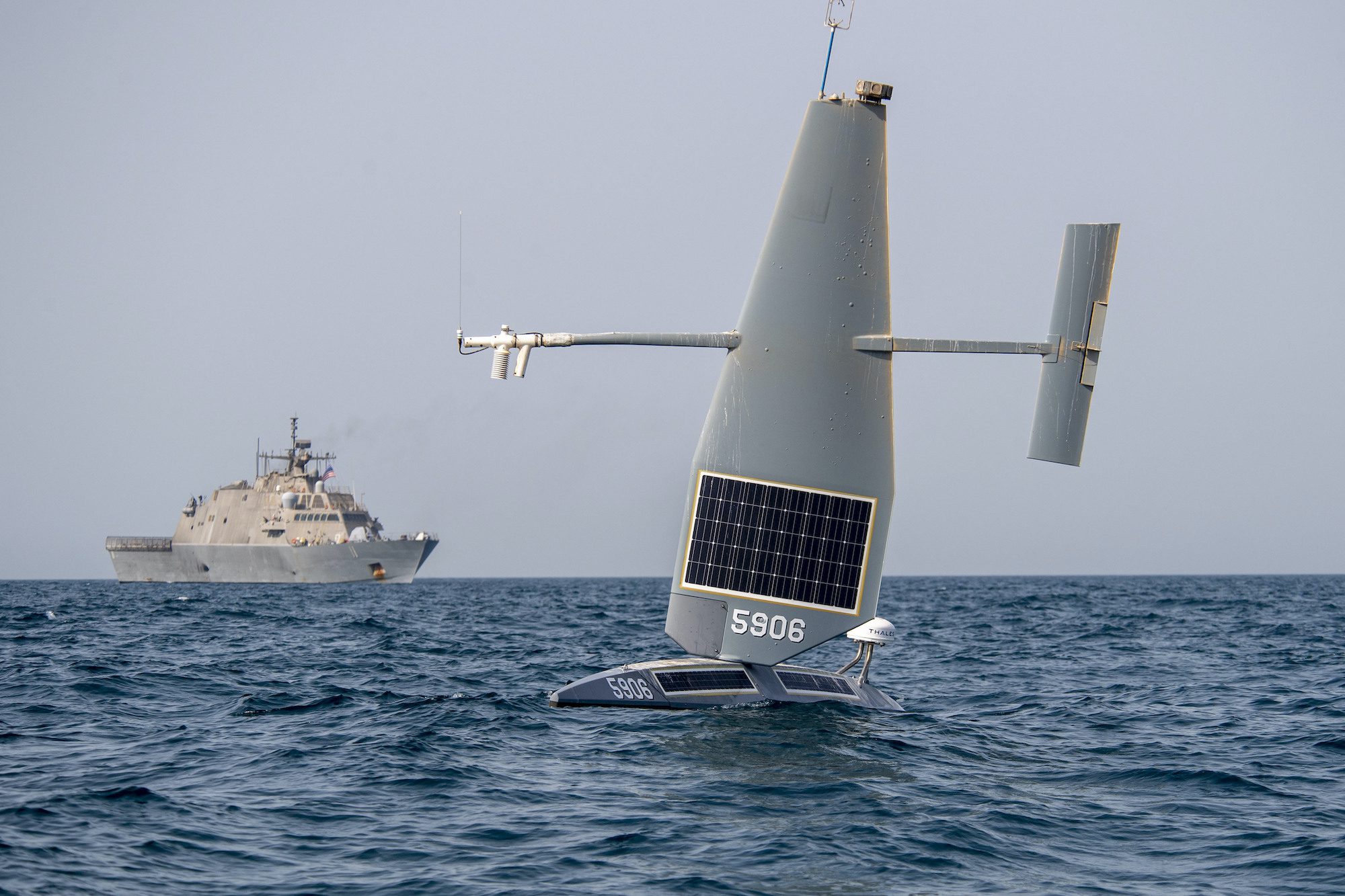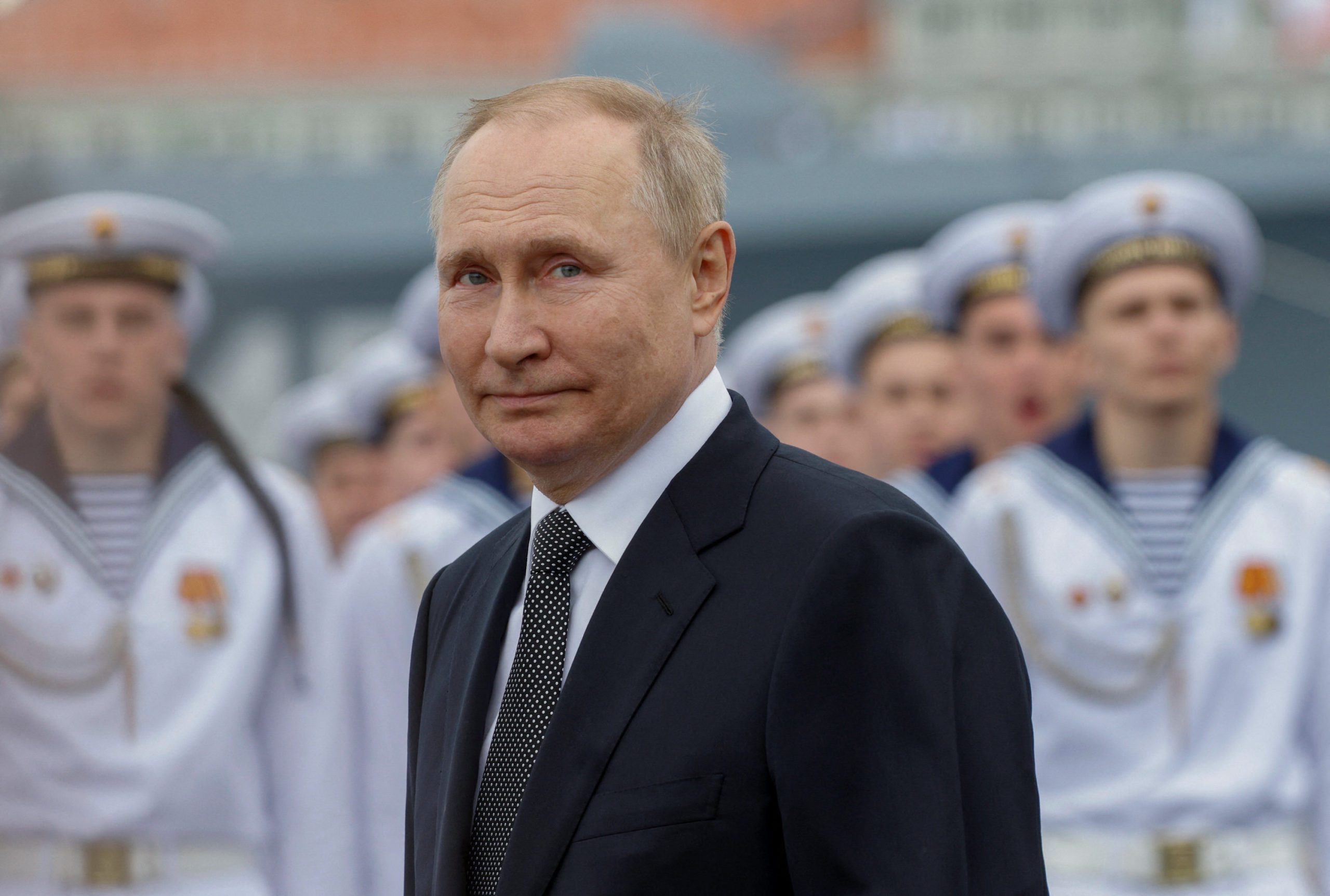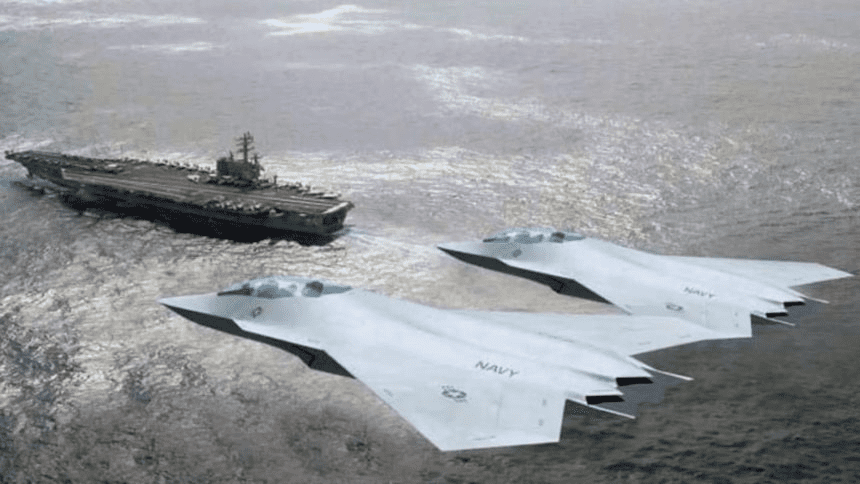By Sam Dagher
(Bloomberg) –The US is trying to convince Middle East allies to add dozens more robot vessels around the Arabian Peninsula to better detect threats from countries like Iran, a move to protect waterways vital to global commerce and oil trade.
The US, which leads two international maritime coalitions out of Bahrain, wants to have more than 100 unmanned surface vehicles — sometimes called robots at sea — in operation by the end of the summer, Vice Admiral Brad Cooper, who commands the coalitions and the Bahrain-based Fifth Fleet, said in an interview. An initial target of 50 was met in February and the technology delivers a cost-effective and efficient way of deepening US partnerships, he said.
The plan is being carried out as Iran, emboldened by a China-brokered deal to re-establish relations with US ally Saudi Arabia, seized a seciond tanker in less than a week. The US Navy released footage of boats it said were owned by Iran’s Islamic Revolutionary Guard Corps swarming the Panama-flagged oil tanker Niovi as it sailed through the Strait of Hormuz, between Iran and Oman.
In addition to Iran, the US is concerned about China’s efforts to expand military and security ties with Gulf Arab states, who have historically relied on the US for defense needs. China, the largest trading partner for most of those countries and the top buyer of crude oil from the region, already has a naval base in Djibouti in the Horn of Africa.
It’s only logical China would want military bases in the Middle East to be “closer to the action,” said John Schaus, a defense expert at the Center for Strategic and International Studies.
In March, China held joint naval drills with Iran and Russia in the Gulf Oman.
“You can’t compare a rudimentary exercise to the broad sophisticated integration with large partners that we are leading here,” said Cooper, referring to those drills. He described a US-led maritime exercise earlier this year as the largest in the region, involving 42 countries, 7,000 people, 35 ships and 30 USVs. It also included a mock patient transfer in a USV.
Bahrain Base
In an operations room at the Bahrain naval base packed with screens and computers, Captain Colin Corridan, commander of Task Force 59 which is responsible for deploying the new USVs, said a lot of the footage and information collected from the sea robots is synthesized by artificial intelligence to ease the burden on humans. The USVs are made by Canadian, Israeli and US companies, among others, and cost from $800,000 to $3 million. They range in size from slow-moving solar-powered buoys to large unmanned speed boats.
“They are just eyes on the water constantly sending signals,” said Corridan.
At an outdoor hangar displaying some of the USV models, Lieutenant Commander Jorge Lens from the Spanish navy and a member of Corridan’s task force says some unmanned vessels can stay out for months without the need to refuel and resupply — the record is 220 days in the Red Sea.
Julie Angus, co-founder of Canada’s Open Ocean Robotics which manufactures USVs, was among those who traveled to Bahrain in November to take part in a naval exercise. She has also touted the autonomous vessels’ potential in the field of marine conservation.
So far only Bahrain and Kuwait have publicly announced plans to buy USVs, according to Commander Tim Hawkins, a spokesperson for US and coalition naval forces in Bahrain. The Iran tanker seizures are precisely why the “more enhanced visibility” provided by USVs is critical to regional security and stability, he said in emailed comments.
Bilal Saab, director of the Defense and Security Program at the Washington-based Middle East Institute, warned the US faces an uphill battle convincing Gulf Arab states, who typically take large and expensive military gear, of the utility of these vessels. That said, USVs are exempt from the lengthy Foreign Military Sales process that Gulf countries often complain about.
“It’s mind-boggling, your entire economy and national survival depends on your export of oil yet you do not have the maritime capabilities to secure your waters, they have always relied on us,” said Saab.
The US military including the Navy must also contend with the narrative that its attention is turning away from the Middle East and Gulf Arab states have to think of security alternatives — including potential alliances with China and Russia.
Bahrain’s Undersecretary for Political Affairs Abdulla bin Ahmed al Khalifa said that while his own country is committed to its partnership, certain regional states are frustrated with the human-rights conditions often attached to US military sales. This is making them look elsewhere.
“It’s an open market,” he said in an interview.
–With assistance from Julius Domoney and Paul Richardson.
© 2023 Bloomberg L.P.

 Join The Club
Join The Club











